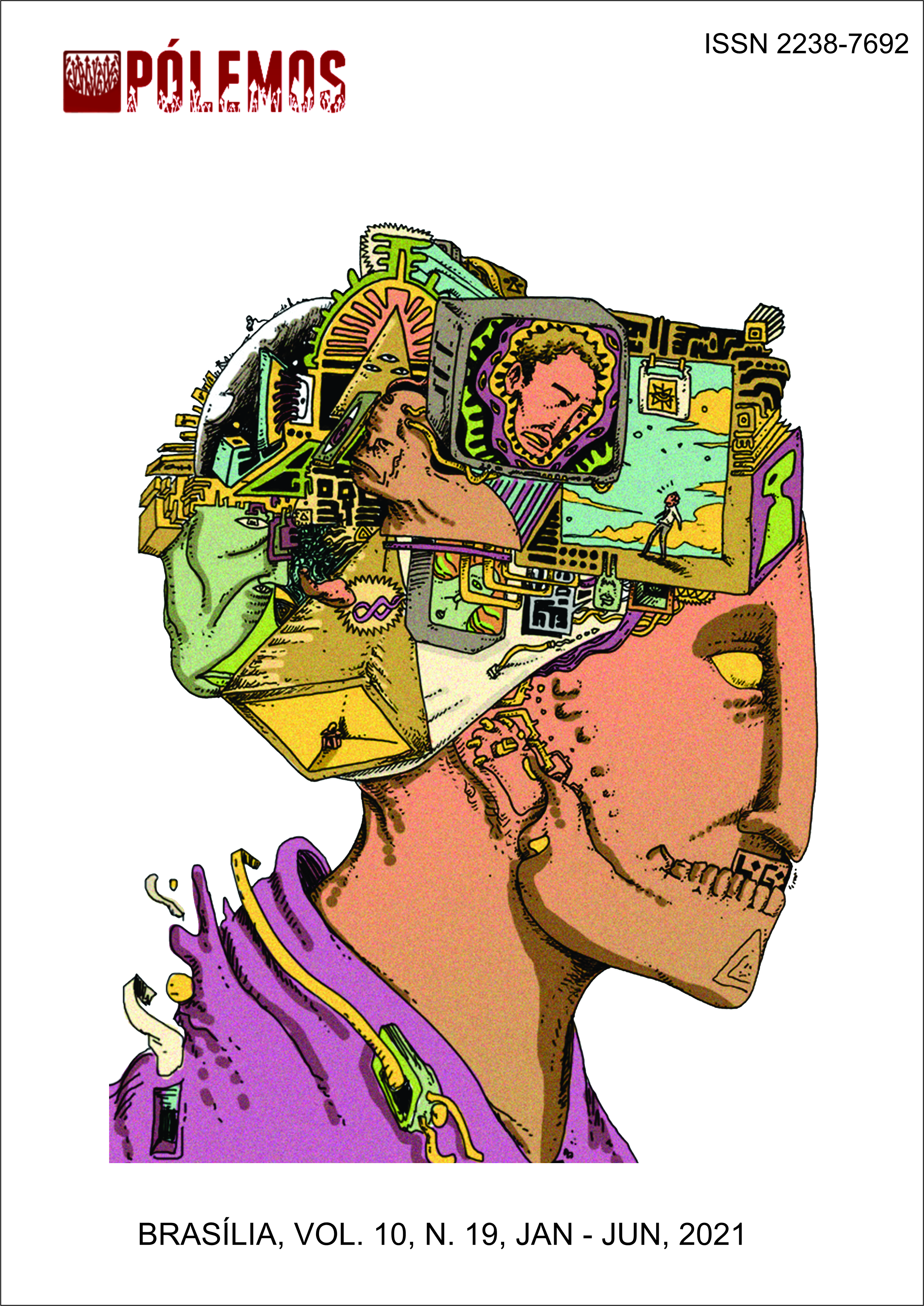DISTINCTION BETWEEN MATHEMATICAL AND PHILOSOPHICAL METHOD IN KANT
the problem of synthesis in Philosophy
DOI:
https://doi.org/10.26512/pl.v10i19.34935Keywords:
Philosophical method. Mathematical method. Discipline of pure reason. A priori synthesis by concepts. Construction of concepts.Abstract
This article seeks to understand the distinction between mathematical and philosophical method made by Kant in the pre-critical and critical periods. The central hypothesis is that, in distinguishing mathematics and philosophy, Kant never proposed a philosophical method of mere conceptual analysis. To defend it, we first examine Inquiry concerning the distinctness of the principles of natural theology and morality, trying to highlight that Kant proposes that the appropriate method for philosophy must be based on an inner experience of the object. Then, we examine Discipline of pure reason present in the first Critique, where Kant, after clarifying the difference between philosophy and mathematics, proposes a solution as important as paradoxical: critical philosophy would be responsible for a method of synthesis a priori by concepts. Thus, our reading is opposed to Schelling, who argues that Kant would have proposed a method restricted to the logical analysis of concepts for philosophy.
Downloads
References
CASANAVE, A. “Por Construção de Conceitos”. Klein J. (Org.). In: Comentários às obras de Kant: Crítica da Razão Pura, pp. 657-694, Florianópolis: Nefipo, 2012.
EUCLIDES. Elementos de Geometria. Tradução de Irineu Bicudo. São Paulo: Editora Unesp, 2009.
FIGUEIREDO, V. “Apresentação”. In: Escritos pré-críticos, pp. 7-21. São Paulo: Editora Unesp, 2005.
FRIEDMAN, Michael. “Concepts and Intuition in the Mathematical Sciences”. In: Kant and Exact Sciences, pp. 96-135. Cambridge, Massachusetts, London, England: Harvard University Press, 1992.
KANT, I. Crítica da Razão Pura. Trad. Fernando Costa Mattos. Petrópolis: Vozes, 2012.
KANT, I. Ensaio para introduzir a noção de grandezas negativas em filosofia. Tradução de Vinicius de Figueiredo e Jair Barboza. In: Escritos pré-críticos, p. 51-100. São Paulo: Editora Unesp, 2005.
KANT, I. Investigação sobre a evidência dos princípios da teologia natural e da moral. Tradução de Luciano Codato. In: Escritos pré-críticos, p. 101-140. São Paulo: Editora Unesp, 2005.
KANT, I. Prolegômenos a toda metafísica futura. Tradução de Artur Morão. Lisboa, Edições 70.
LEBRUN, G. Kant e o Fim da Metafísica. Tradução de Carlos A. R de Moura. São Paulo: Martins Fontes, 1993.
LOPARIC, Z. A semântica transcendental de Kant. 5ª ed. Campinas: Unicamp/CLE, 2005.
NEWTON, I. Opticks or a Treatise of the Reflections, Refractions, Inflections e Colour of the Light. New York: Dover Publications, 1952.
SENEDA, M. “Conhecimento Racional por Conceitos (filosofia) e Conhecimento Racional por Construção de Conceitos (matemática)”. In: Revista do Centro de Pesquisa e Estudos Kantianos Valério Rohden, Marília, vol. 6, n. 2 , 2018, pp. 45-52.
SCHELLING, F. “Sobre a Construção na Filosofia.” Tradução de Luciano Codato. In: Cadernos de Filosofia Alemã. São Paulo, vol. 7, 2011, pp. 87-111.
SCHERER, F. “O Método Analítico na Filosofia de Kant.” In: Revista do Centro de Pesquisa e Estudos Kantianos Valério Rohden. Marília, vol. 7, n. 1, 2019, pp. 67-80.
Downloads
Published
How to Cite
Issue
Section
License
Copyright (c) 2021 PÓLEMOS – Revista de Estudantes de Filosofia da Universidade de Brasília

This work is licensed under a Creative Commons Attribution-NonCommercial-NoDerivatives 4.0 International License.
Todos os trabalhos que forem aceitos para publicação, após o devido processo avaliativo, serão publicados sob uma licença Creative Commons, na modalidade Attribution-NonCommercial-NoDerivatives 4.0 International Public License (CC BY-NC-ND 4.0). Esta licença permite que qualquer pessoa copie e distribua a obra total e derivadas criadas a partir dela, desde que seja dado crédito (atribuição) ao autor / Ã autora / aos autores / às autoras.


